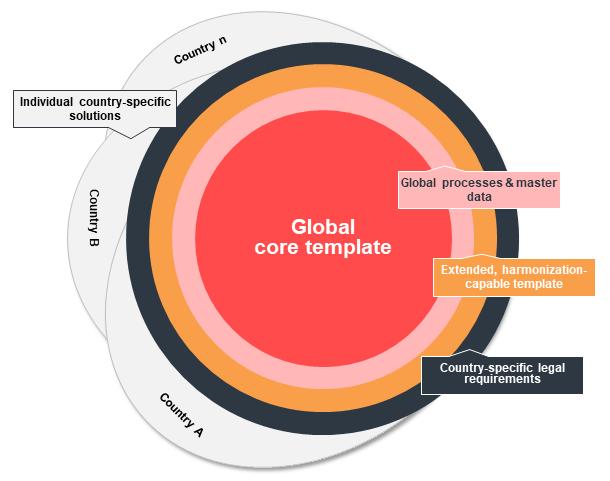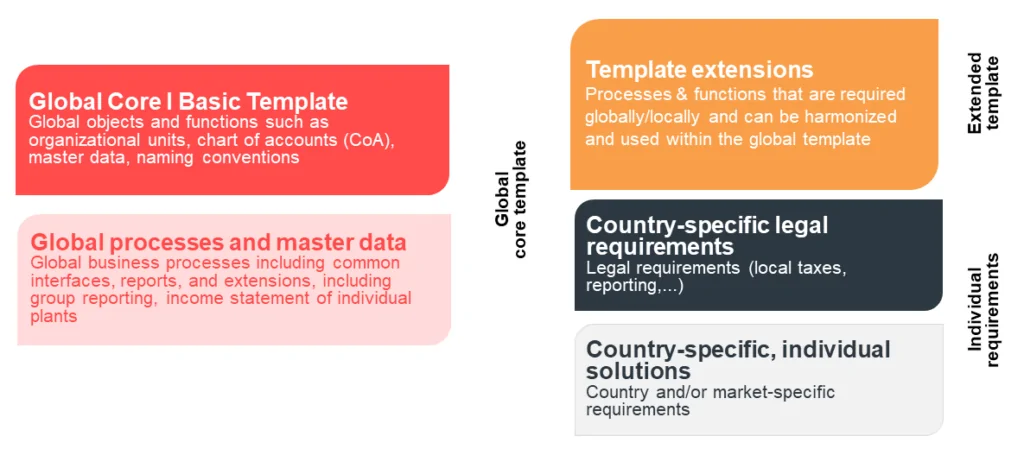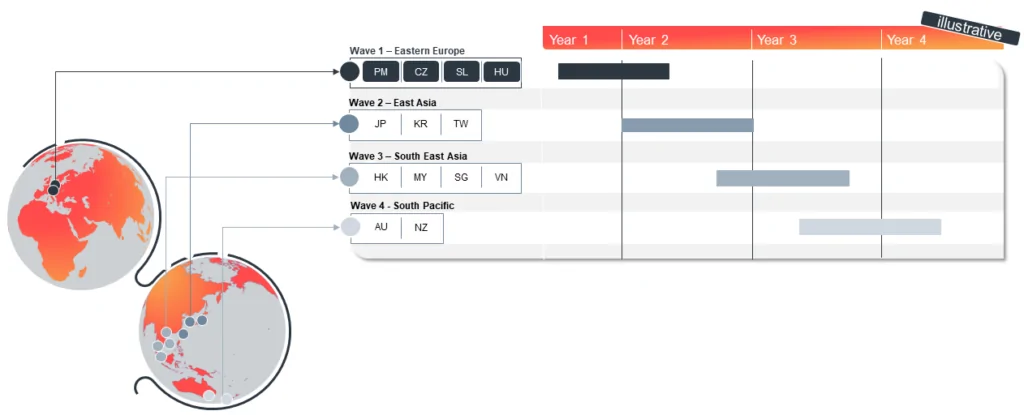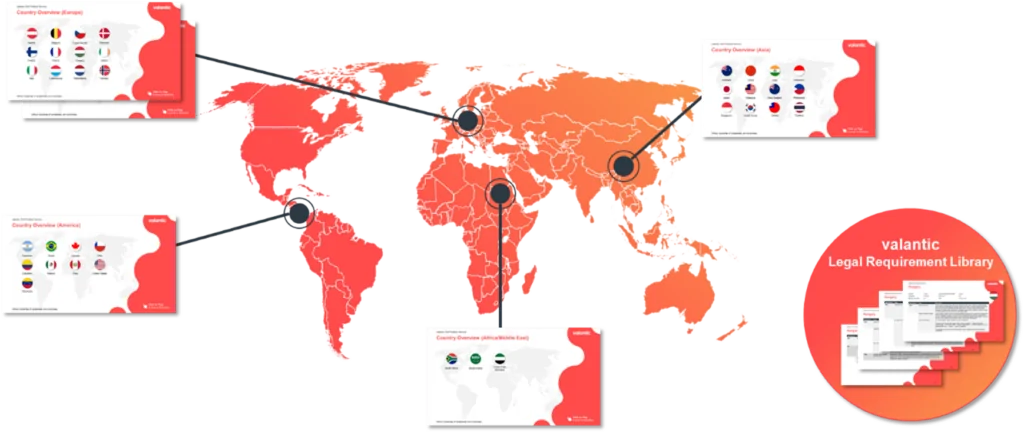Highlight

Successful together – our valantic Team.
Meet the people who bring passion and accountability to driving success at valantic.
Get to know usDecember 12, 2022

Above all, most international companies want to achieve one thing with their SAP S/4HANA transformation: Group-wide standardized and harmonized processes. Lean, simplified global business processes not only reduce process costs, but also maintenance and administration effort. When the challenge is implementing SAP S/4HANA at several local companies and strict standardization and harmonization are required, SAP rollouts with templates are just the ticket. After the initial SAP S/4HANA project is completed at the company headquarters, for example, a template of the globally applicable processes, called the process template, is rolled out at the group companies. This approach can achieve economies of scale, such as a shorter duration of the overall project.
Therefore, the local process requirements must be considered when defining the globally applicable processes. But that’s exactly what gets forgotten, underestimated, or cannot be implemented in most transformations due to the project and process organization. Enormous challenges for companies are complex legal requirements, which mostly come from the international locations’ financial sector. Furthermore, there are other supposedly legal requirements, for example business practices, which are interpreted by users as legal requirements due to the usual process sequences. These run the risk of undermining the template, resulting in isolated country-specific solutions instead of standardized processes.
SAP template rollouts are therefore usually more complex, not to mention more demanding in terms of organization and politics than is expected after the initial SAP S/4HANA project. That’s why it’s all the more important to create a rollout-capable template and to anchor clear template governance in the project methodology and organization, since this ensures that the desired standardization and harmonization will be achieved at all companies. For successful template projects, it’s important to understand and adhere to 3 fundamental principles.
According to the “onion” principle, a global SAP rollout template has several layers. The initial template forms the inner core and includes the system settings, processes, and master data that must be used in every country and at every company. Additional specifications that are required due to the business model, for example, must necessarily be harmonized to match the template concept. This can be achieved, among other things, through follow-up processes. These requirements are referred to as harmonization-capable template extensions.

Everything beyond this is an individual requirement, which cannot simply be mapped via the existing template. However, these requirements must be considered in a differentiated way. Every country has legal requirements that companies must comply with. Most of the time, these are tax or other official requirements for reporting or procedural requirements, such as split payment in Poland or specific payment methods such as payment via QR code in Switzerland. These country-specific requirements must, of course, be implemented as template extensions; this is referred to as template localization.

It is essential to be familiar with these legal requirements and to distinguish them from other requirements of the local units. After all, any non-legal requirement that is implemented during the rollout is a country-specific, individual solution and contradicts the template idea. The more individual solutions are implemented, the more a template solution morphs into an individual solution. Due to less standardization and harmonization, this results in higher costs for system operation and maintenance and paralyzes the agility of the process environment as a whole.
Whether implementation is necessary and what effects it will have must therefore be evaluated by all parties involved. That’s why we recommend that you make a supervisory authority part of the project organization – for example, a Business Integration Board, which ideally consists of decision-makers who are not involved in the project operationally.
In order to speed up large implementation projects and reduce costs, rollouts are often done in parallel at several companies. For this “industrialization”, waves and clusters are formed; waves combine several rollouts and clusters consist of several waves. Important criteria for parallel rollouts are a similar size of the sites, their geographical location, and the complexity of their requirements.
The project organization and template governance must be set up so that companies can succeed in this industrialization. Important here are global process owners and the supervisory authority that decides on template extensions. This is the only way to achieve effective scaling effects across the individual waves. A pilot rollout helps to test the project organization for this and to familiarize all participants with the methodology. A well-rehearsed, experienced team and effective decision-making processes also play a central role here.

In addition to project organization and wave planning, success factors for rollout projects include knowledge of country-specific requirements; these are usually reporting and process requirements in the financial sector. For countries with complex requirements, companies should involve partners familiar with local regulations and conditions, such as audit firms.

We at valantic are familiar with different countries’ requirements since we have successfully completed numerous international rollout projects. We share this knowledge with our customers through an extensive library of legal specifications, the valantic Legal Requirement Library. It is part of our SAP rollout services and can be used as a basis for localizing country-specific requirements. In addition, it allows us to identify specific additional requirements and to conduct fit-gap workshops quickly and with confidence. The local requirements are mapped to the existing template and deviations identified. In the subsequent evaluation, we check how these requirements can be mapped from the template in the interest of standardizing via existing processes.
Successfully plan SAP rollouts
Are you planning SAP rollouts as part of your transformation, and do you have questions about these projects? Then make a consultation appointment with us free of charge. We will…
Don't miss a thing.
Subscribe to our latest blog articles.